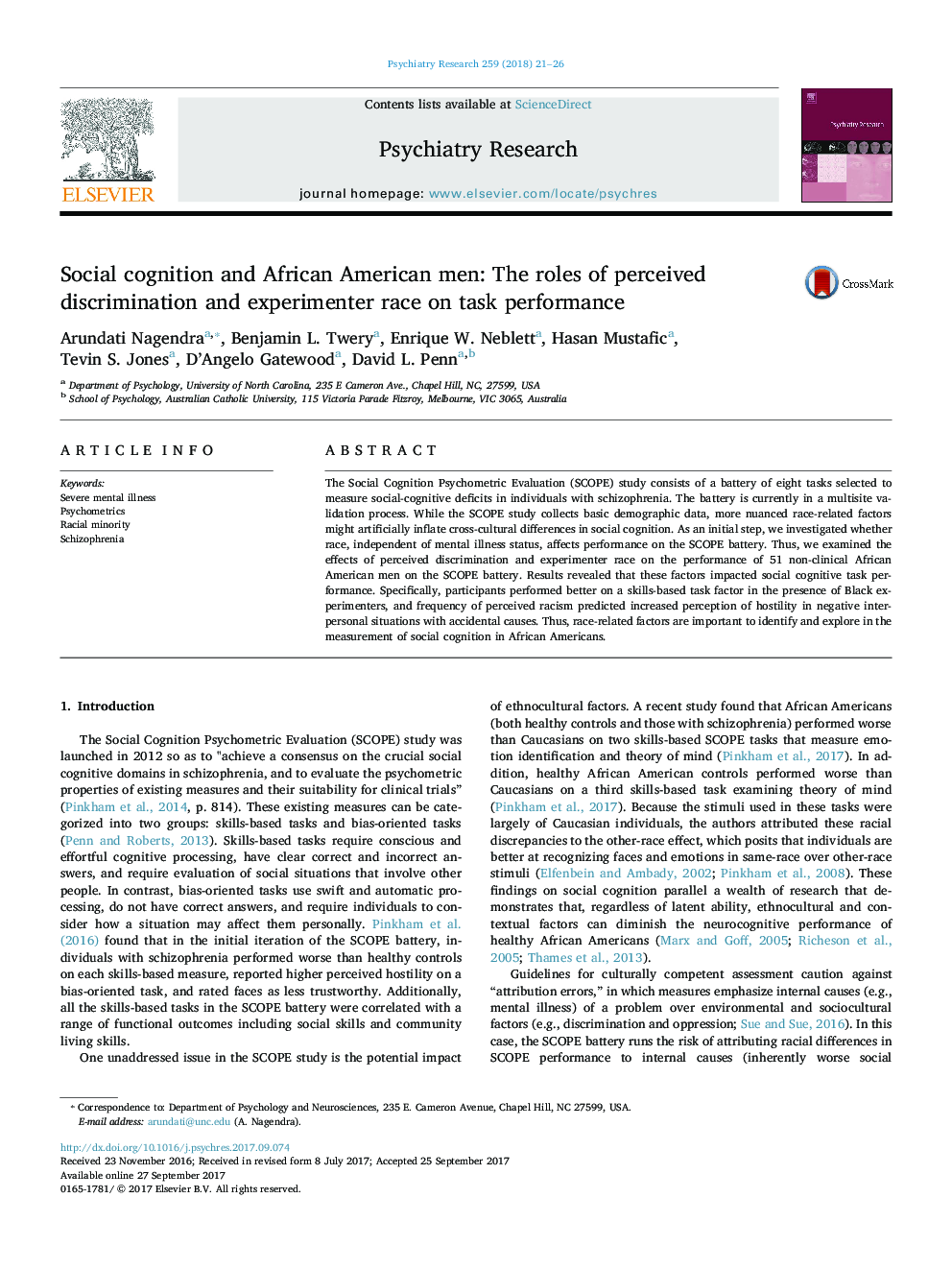| کد مقاله | کد نشریه | سال انتشار | مقاله انگلیسی | نسخه تمام متن |
|---|---|---|---|---|
| 4932997 | 1433787 | 2018 | 6 صفحه PDF | دانلود رایگان |
- Social cognition is an important predictor of outcome in schizophrenia.
- Cultural influences on social cognitive assessments have not been assessed.
- This study examined social cognition in 51 African American men.
- Black experimenters improved skills-based task performance.
- Perceived racism increased perceived hostility in accidental aggressive situations.
The Social Cognition Psychometric Evaluation (SCOPE) study consists of a battery of eight tasks selected to measure social-cognitive deficits in individuals with schizophrenia. The battery is currently in a multisite validation process. While the SCOPE study collects basic demographic data, more nuanced race-related factors might artificially inflate cross-cultural differences in social cognition. As an initial step, we investigated whether race, independent of mental illness status, affects performance on the SCOPE battery. Thus, we examined the effects of perceived discrimination and experimenter race on the performance of 51 non-clinical African American men on the SCOPE battery. Results revealed that these factors impacted social cognitive task performance. Specifically, participants performed better on a skills-based task factor in the presence of Black experimenters, and frequency of perceived racism predicted increased perception of hostility in negative interpersonal situations with accidental causes. Thus, race-related factors are important to identify and explore in the measurement of social cognition in African Americans.
Journal: Psychiatry Research - Volume 259, January 2018, Pages 21-26
